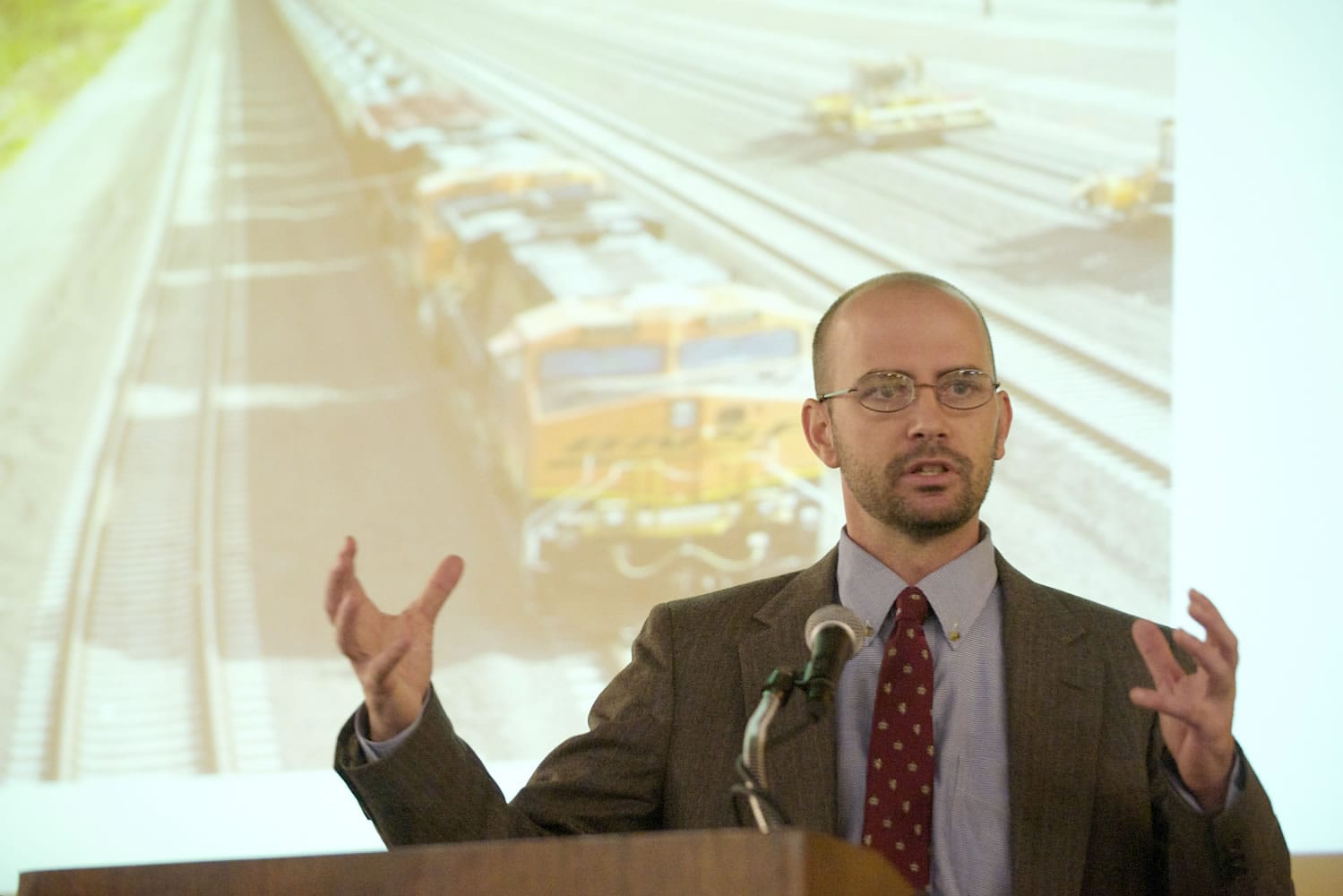Three environmental groups asked the Washington Supreme Court on Friday to review issues surrounding the Port of Vancouver’s closed-door meetings dating back to 2013 during the port commission’s consideration of a lease with Tesoro Corp. and Savage Cos., now operating as Vancouver Energy, to build a rail-to-ship oil transfer terminal at the Port of Vancouver.
The request by terminal opponents Columbia Riverkeeper, the Sierra Club and Northwest Environmental Defense Center call for the Supreme Court to offer clarification on a central issue in the legal dispute in advance of any appeal of a Clark County Superior Court ruling issued in July. The environmental groups argue that a discretionary review by the Supreme Court could speed up the legal process by clarifying the scope what is commonly called a “minimum price” exemption to the state Open Public Meetings Act. That exemption allows public bodies to meet in closed-door sessions “to consider the minimum price at which real estate will be offered for sale or lease when public knowledge regarding such consideration would cause a likelihood of decreased price.”
Friday’s legal filing is the latest round in a lengthy dispute between the Port of Vancouver and its critics over at least seven closed port commission meetings in 2013, when the port was considering a lease for the proposed oil terminal.
Clark County Superior Court Judge David Gregerson ruled in July that five of the port commission’s seven closed executive sessions were properly held to discuss the minimum price at which it would offer to lease land to Tesoro and Savage. He said the port had some latitude under the law to privately discuss several things that go into “setting the price of a particular transaction.” However, Gregerson said, there was a factual dispute about whether the discussion at two of the 2013 meetings — April 9 and July 22 — complied with the open public meeting law’s exemptions for real estate discussions.
Gregerson also ruled that the port violated the law when it failed to give a proper reason and an end-time for a closed-door executive session its elected commissioners held on July 22, 2013 — the evening before the commission’s first unanimous approval of a lease with Tesoro Corp. and Savage Cos. The port commission later took a second public vote to correct problems in its handling of the first vote.
In asking the Supreme Court to get involved in advance of any potential action by the appeals court, terminal opponents argue that a high court’s review of the “minimum price” exemption could avoid a trial based on what it called the Clark County Superior Court’s questionable interpretation of the state Open Public Meetings Act’s “minimum price” exemption. The Superior Court’s interpretation of that exemption “conflicts with the plain language of the provision and with this Court’s direction to narrowly construe exemptions to (the public meetings act),” the terminal opponents say in their filing to the state Supreme Court.
In a statement, the Port of Vancouver expressed confidence that its use of executive sessions is in keeping with the Open Public Meetings Act.
“Judge Gregerson approved the port’s interpretation of the term ‘minimum price’ in a ruling in July 2015, validating the approach that the port took to make sure it could negotiate effectively on the agreement associated with the Vancouver Energy terminal,” the port said. “Because this is a legal issue that has not previously been decided, the port agreed that (Columbia) Riverkeeper could ask the Court of Appeals to review that issue of the case. Our legal staff anticipates that the Supreme Court will direct the question to the Court of Appeals, and that Judge Gregerson’s well-reasoned decision will be upheld.”
The proposed oil terminal, which could receive by rail about 360,000 barrels of crude per day at the port, is undergoing an environmental impact analysis by the state Energy Facility Site Evaluation Council.
The evaluation council is expected to release the oil terminal’s draft environmental impact statement for public review and comment on Nov. 24.
It will eventually recommend approval or denial of the project to Washington Gov. Jay Inslee, who gets the final say over whether the project gets built.




